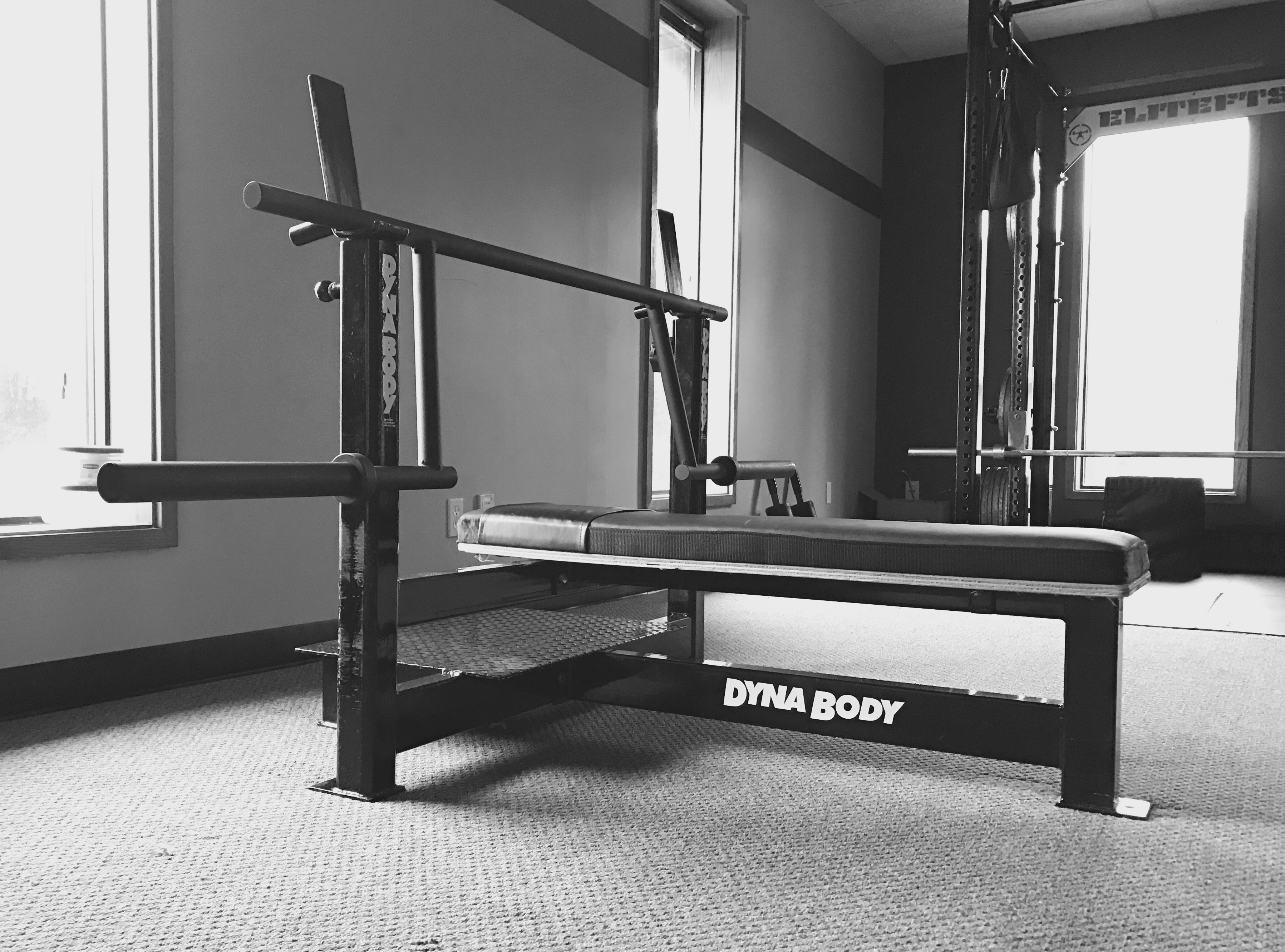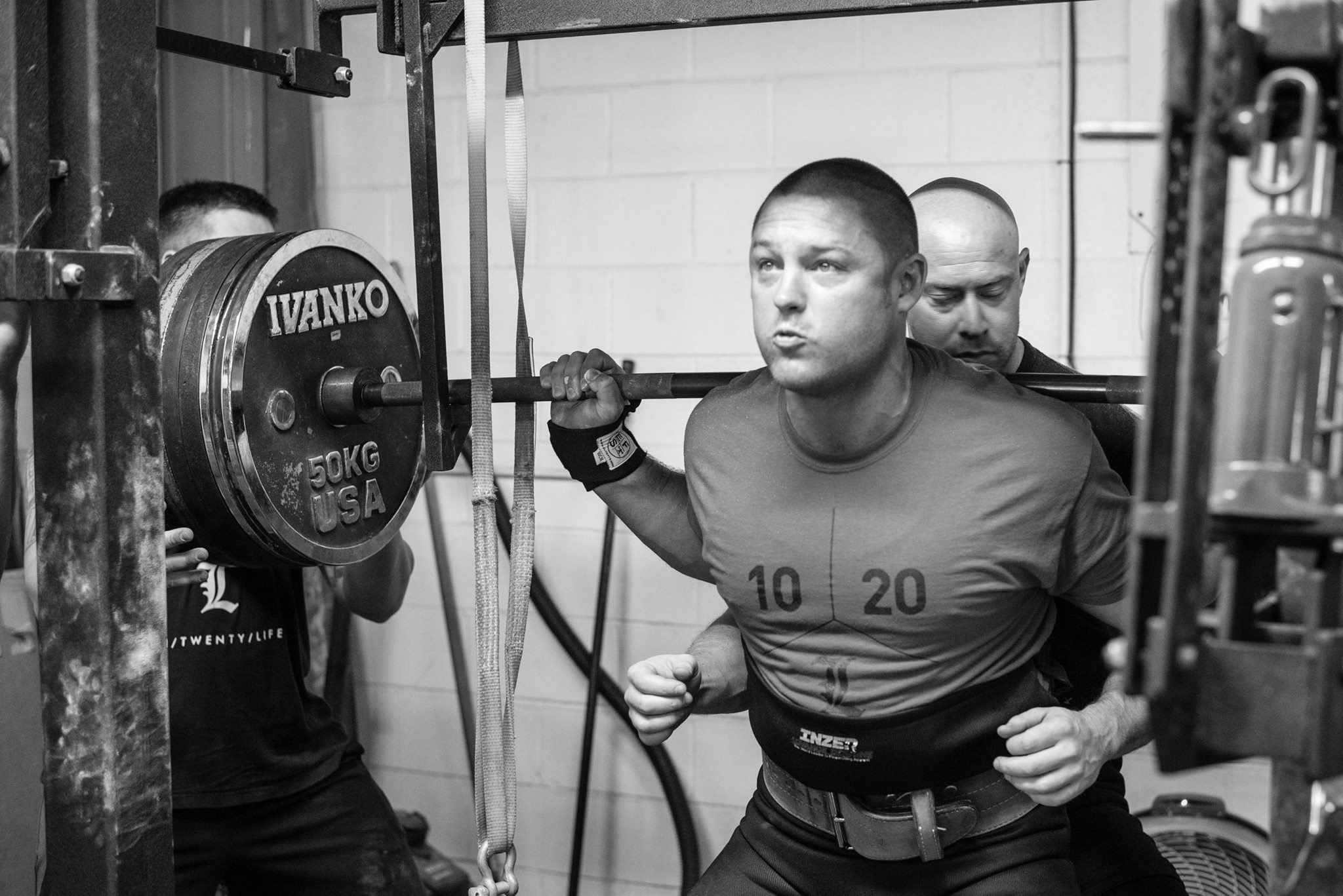
23 Jul Utilizing a Deload & Off-Season
By Dain Soppelsa
I was first introduced to the concept of a real deload when I started utilizing the 10/20/Life principles a couple of years back. When I first saw how often and how light the deloads were, I was very skeptical. It seemed like to lift at an RPE of 5 every third week would be counterproductive to getting strong. I couldn’t fathom how I could make progress by essentially wasting a week after every two weeks of training. The phrase one step forward and two steps back came to mind. It was such a foreign concept. I just couldn’t understand how a person could require a deload so often. I definitely felt like this was going to be something that I was going to wrestle with right from the start.
I did eventually agree to follow the program that had been written for me. I am definitely someone that believes that if you seek out someone’s advice or help, you need to accept it. I had asked my training partner Dan Dalenberg to write me a 10/20/Life training cycle and I knew there was no good reason not to give it a legitimate shot. So I dove in head first. I learned very quickly that the idea isn’t too wait until you need a deload, it is to deload BEFORE it is needed. Doing this can prevent many little nagging aches and pains from becoming more serious injuries. The lighter week gives your body a chance to heal up before rolling into the next week of your training. It turns out you can prevent injuries before they happen.
I also struggled with how light the weights are during a deload week. My interpretation of a deload, before starting 10/20/Life, was to maybe skip my top set, or two on a given max effort day. It turns out, that is NOT a deload. The reason that the weights are light is so a person can dial in their technique and/or work on speed. It also turned out that just because the main exercise isn’t done heavy does not mean that hard work won’t be done on this day. Accessories were still to be done and at the end of the workout, I was definitely tired… It was a foreign concept to lift light, but still felt like it was a productive day in the gym.
Another aspect of the deload that ended up being very beneficial to me is the mental break you get during this week. It’s a hard thing to be mentally dialed in and super focused for every single training session. Things happen in life. People have different moods. It ended up being a huge bonus to essentially turn my brain off and just do the work that was programmed for me. The time always comes when a lifter needs to be sharp and zoned in, but I definitely feel like it’s something you should be able to turn on and off. I have read several articles that talk about how you have to always be crazy focused. Some say it should start when you enter the gym every training session. Some say that whole day prior to your training session you have to be mentally focused. I just don’t think that’s absolutely necessary. You’ll end up burning yourself out if you try to do it that way.
Another aspect of 10/20/Life that I struggled with was the concept of an off-season. I was under the impression that I needed to be ready to do a meet at all times, even when there wasn’t one in sight. I thought that every workout needed to be done as heavy as possible. The closest thing I ever had to an off-season was doing triples instead of singles for a few weeks while I decided on a meet. Something that Brian emphasizes, that I never did early in my powerlifting career, is to treat yourself as any other athlete would. It says right in the 10/20/Life books that all athletes of other sports have an off-season after their regular season is done. A football player wouldn’t do full contact practices during the months of the year they aren’t playing games, so why would a lifter train maximally, or near maximal, 52 weeks a year? It just doesn’t make sense.
We may not do this for a living and we may not get famous from powerlifting, but if you don’t treat yourself like you’re an athlete, your career is definitely going to suffer in longevity. How long do you think you can be successful when you never give your body a break? I don’t know the exact answer when it comes to my body, but I definitely don’t want to find out. A bonus about lifting lighter in the off-season is that your likelihood of being healthy when you begin meet preparation is much higher. Wouldn’t it be nice to not be nursing injuries when you need to get serious and the weights need to get heavy? I have definitely noticed a significant improvement in my joint health since utilizing an off-season. It just flat out works.
Another thing that I was concerned about in using an off-season, is only having 10 weeks to prepare for a competition. I was afraid my body wouldn’t be ready with only a few weeks of heavy training. You know what I found out? The answer is absolutely yes, it will. It’s plenty of time. There is a reason meet prep is written as 10 weeks, it’s because that’s enough time to peak strength successfully. This wasn’t a guess. This is something that Brian Carroll has determined based on many years of experienced training and competing. I tend to trust his judgment, but if you aren’t sure, maybe check the all-time lists. I’m certain after you see how many times his name appears, you’ll trust his judgment too.
I wondered if I needed a deload and an off-season. The answer is a resounding YES. Personally, I feel very lucky to have been able to compete as long as I have, training the way I was training prior to using 10/20/Life principals. You only get one shot with your body, so do yourself a favor and take very good care of it. It doesn’t matter if you have a decade of training under your belt, or one year. A deload and an off-season are a must for anybody’s training program if they want to stay in the game for any length of time. Don’t be too proud to accept that there are things you may not know. It’s not a knock on your knowledge. It’s a plus that you can admit when there is valuable, applicable knowledge available. Take advantage of it ASAP; your body will appreciate it.
To understand more about what a deload is and isn’t pick up a copy of the new 2nd Edition 10/20/Life.
Dain Soppelsa
Latest posts by Dain Soppelsa (see all)
- Dain Soppelsa Log Offseason Week of 2/25/18-3/3/18 - March 5, 2018
- Dain Soppelsa Training Log Offseason Week Of 2/18/18-2/24/18 - February 25, 2018
- Dain Soppelsa Offseason Week of 2/11/18-2/17/18 - February 18, 2018








Sorry, the comment form is closed at this time.